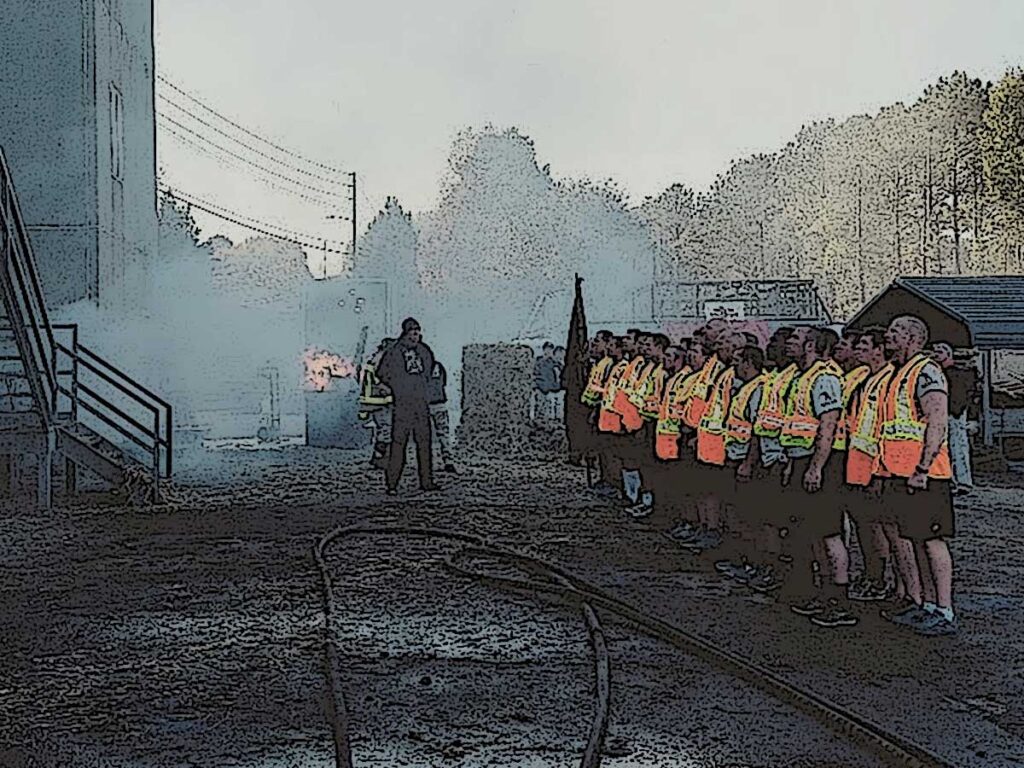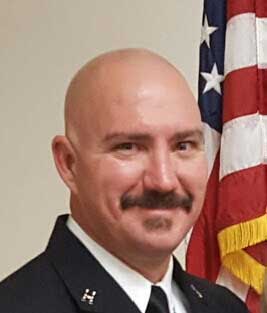
By Chad Miller
Our fire service is filled with men and women that have a deep desire to make themselves, the firefighters they work with, and their fire departments better. Such people do not seek recognition or praise but are driven by a personal goal to help those around them. They strive to improve their knowledge, skill, and ability as firefighters, to help their brothers and sisters cope with the stresses of their professional and personal lives, or to make sure their members are treated fairly by the municipalities they work for. As long as they are having a positive impact and making the fire service better, that is all these individuals need to keep waking up and doing it all over again.
- Failure: Important Life Lessons Firefighters Are Afraid to Learn
- Safety, Accuracy, SPEED: The Forging of a Fireground Culture
- Mission-Driven Culture: A Path to Success
In pursuit of the goal of constant improvement, you may be called to serve in different positions or roles within your department. Some of these roles and decisions that you will be involved in will make half the department happy and the other half unhappy, regardless of your intent or the actual outcome.
Over the course of my career, I have held many different roles within my fire department, both on the labor and administrative sides of the house. In my time serving in these roles, I have worked extremely hard to make the best decisions for the membership. I always strove never to make a decision for my own personal benefit. Regardless of that effort, my time serving in these positions garnered criticism from all different levels of the department. What I have learned is whether the criticism is rightfully deserved or not, most of the time perception is all that matters. What I mean is that, regardless of the facts of any situation, if a rumor or dialogue takes hold in your department and is embraced by the members, those will be regarded as the facts.
As we move through our careers and take on different roles and responsibilities, our ability to lead depends a great deal on our ability to earn trust with the members that we work with. I would venture to say it is the most important factor in the success or failure of any person in a position of authority, whether a lieutenant, captain, battalion chief, union president, or fire chief. When criticisms or untruths follow us into those new positions, many times the most important choices we must make is not on the fireground but in how we choose to respond to personal criticisms when they come up. They can make or break our ability to earn trust and build confidence with our members.
- Seven Trust Busters That Damage Your Team
- Critiques, Crittacks, and Travelogues: Learning from Experience
- Building Trust: Decentralized Idea Making
- Frank Viscuso: Critiquing Others
Recently, I moved positions in my department as a district chief (otherwise a “battalion chief” in other departments) on 40 hours back to field operations. The decision had been made as to the district I was going to be transferred to. While I was still on 40 hours waiting on my transfer to be finalized, I was involved in a situation that resulted in a direct criticism of me and my ability to lead the district I was going to be assigned to. This criticism was based on other people’s opinion of me from the past positions that I had served in. It had nothing to do with my actual ability as a district chief. The member who was at the center of the issue was someone that I knew, but we had never worked together. During a discussion, I could have gotten angry and berated him for having an opinion of me based off what he had heard of me, not what he knew about me. Although I had not worked directly with this member, I had heard nothing but good things about his work ethic and abilities as a firefighter. Nevertheless, I did not know this person personally, so I had nothing to form my own opinion from. For me to respond to him with criticism and anger would not have done anything to make the situation better. Instead, it more likely would have damaged my ability to earn trust or respect with him going forward. Instead, I explained that I had served in several positions that I knew had put me in places where members of the department had not agreed with me or spurred others to form unfavorable opinions of me. I explained that I had always sought to make the right decision for the members of the department, regardless of whether it made some people angry or not. I told this member that I have always formed my opinion of people based off my own experience with them and not on what other people told me about them. I asked that he offer me the same courtesy going forward. I think the outcome was positive, but not enough time has passed to determine that just yet. What I am convinced of is this: had I chosen the other course of action, it would have only reinforced the perception he had about me in the first place and closed the door on any opportunity for a productive working relationship going forward.
Dealing with Criticism
I would offer up three steps to consider when dealing with similar situations:
1. Do not respond in anger or when you have not processed through your initial emotional response. Anger and emotion prevent you from analyzing a situation objectively and being able to determine the best course of action. Emotional responses may feel good at the time but in my experience are usually the wrong course of action. You will end up causing more damage than good.
2. Try to look at it from the other person’s point of view. We all have a right to our own opinions and perspectives. If someone has a different opinion of us, we owe it to them to try and understand why they feel that way. We also owe it to them to try our best to prove any flawed or unjust opinions of us incorrect. We do that by how we respond to them and treat them not by telling them they are wrong and demanding they see things our way. That will only prove they may have had the right perspective all along.
We earn others’ opinions of us by how we conduct ourselves day in and day out. Our daily decisions, both personal and professional, ultimately prove whether we are who we think we are.
3. Offer grace whenever possible. Every one of us makes mistakes in life. I have misjudged people more times than I care to admit. I am not sure where I heard it or who to attribute it to, but everyone needs to be offered a way out of a bad situation. Sometimes we make honest mistakes and do not know exactly how to extract ourselves from them. It is a lot easier when the other person(s) involved does not slam the lid on the box we have put ourselves in and force us to stay there.
Every firefighter who has been promoted within a department has a great responsibility to those he or she serves with. When we are faced with difficult situations, especially those that involve our personal character, treat others the way you would want to be treated— with dignity and respect.

Chad Miller is a 27-year veteran of the fire service. He has been with Tulsa (OK) Fire Department since April 2000, currently holding the rank of district chief. He completed the Georgia Smoke Diver program in November of 2017 in Class 54. Chad is a founding member of the Oklahoma Smoke Diver Association and serves as an Elder and its Chief Operating Officer. Chad has worked in the FDIC International HOT Logistics Section for the past two years.

